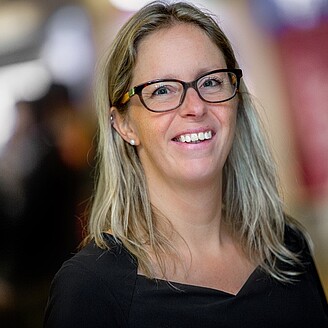Research
The Strategic Management and Entrepreneurship department takes pride in its high-performance research culture. The organisation and its moves are central to our research, which examines such as organizational forms and governance, strategic innovation, strategic entrepreneurship, global strategy, and strategic decision-making.
The faculty combines rigor with relevance, publishing in all top tier journals of the field, such as the Academy of Management Journal, Academy of Management Review, Administrative Science Quarterly, Journal of International Business Studies, Journal of Management, Organization Science, and Strategic Management Journal. Faculty members also regularly serve as (Associate) Editors of top journals like Academy of Management Journal, Academy of Management Review, Journal of Management, and Journal of Management Studies. We have an outstanding PhD program, which has a strong record of placements at peer institutions like INSEAD, HEC, Cambridge University (Judge), University of Warwick, University of South Carolina (Moore), Aalto University, and McGill University.
Focal areas
Research in Strategy, Organization, and Governance
A combination of economic, political, and social forces gives rise to a wide range of organizational forms. Research in strategy, organization, and governance aims to explain and identify the mechanisms through which modern firms shape and align their organizational structures, governance and ownership with the strategies, resource dependencies, and business models through which they create and capture value. Research in our group is highly versatile, including projects investigating the re-emergence of craft organizations and state capitalism on the world stage, the competitive advantage and strategic resilience of business groups, owner-managed firms, family firms, and professional partnerships, and how active owners shape the strategies and the organizational and governance structures of listed firms across different national contexts. Our research often takes up a comparative perspective, involving both comparisons between different institutional contexts and comparisons between different organizational forms.
Research on Strategic Entrepreneurship
In today’s fast-paced environments, wealth creation demands proficiency in continuously identifying and generating new opportunities for growth. At the nexus of entrepreneurship and strategic management, research on strategic entrepreneurship is concerned with understanding how organizations link entrepreneurial behaviour and strategic advantage-seeking actions to create and capture wealth. The work in our group focuses on ambidexterity, corporate entrepreneurship, scaling up, and strategy implementation. Exemplary research addresses such aspects as: how organizations strengthen their core business while also developing new businesses that will define the future; how organizations become more entrepreneurial through the generation of new businesses within established systems and through strategic renewal; how some organizations can ignite rapid growth and scale up successfully by leveraging new technologies, establishing platforms, redefining boundaries, and developing new and scalable business models; and how new practices and technologies enable firms to implement strategies which focus on venturing into new businesses as well as strengthening their core.
Research on Strategy, Knowledge, and Innovation
New technologies and new business models reshape the way firms do business. This calls for new insights into how managers and entrepreneurs can best innovate and leverage knowledge to build competitive advantages for their firms. The field of strategy, knowledge, and innovation focuses on how managers and entrepreneurs build and renew the technological, social, and relational capital to shape such innovations. It addresses such issues as strategic renewal, innovation management, management innovation and the rise of new organizational forms, collaborative and open innovation, innovation ecosystems, and corporate venturing. Our group covers a wide range of topics in this area, such as: micro-foundations of absorptive capacity and dynamic capabilities that enable innovation; the origins of business model innovations; the implications of technological disruptions; the mechanisms of effective collaborations to achieve innovation by large incumbent firms and new ventures; and the governance and assessment of the impact of such collaborations.
Research on Global Strategy
The competitive landscape of firms is increasingly dynamic, diverse, and global. The field of global strategy aims to enrich our understanding of how internationally operating firms form and implement their strategies, and how firms shape, and are shaped by, their global context. It focuses on foreign-entry strategies in culturally, politically, and economically heterogeneous contexts, and ultimately on the determinants of success or failure in international arenas. Our group typically adopts an institutions-based perspective, which argues that international firms are constrained and enabled by widely diverse, durable rules of the game, as illustrated by the diverse societal expectations around competitive behaviour and sustainability performance. Exemplary research projects in our group include novel views on culture, cross-border knowledge transfer, strategic responses to institutional voids, influences of governments and other stakeholders on corporate environmental practices, cross-country and within-country variance in institutions, and international strategies of the largest companies, born-globals, and emerging-market multinationals.
Research on Behavioural Strategy and Entrepreneurial Behaviour
Influential strategic and entrepreneurial decisions result from extraordinary human effort. Behavioural strategy and entrepreneurial behaviour inform us about the psychology behind these high-impact and complex decisions. It takes a micro-level perspective to understanding how managers and entrepreneurs create and sustain value for their organizations and stakeholders, enriching strategy and entrepreneurship theory through forefront research on human cognition, emotions, and social and innovative behaviour of entrepreneurs, executives, and their teams. Seminal research in the field comprises the behavioural theory of the firm and the upper echelons perspective, as well as pivotal work from cognitive and social psychology. Exemplary group projects explore: how top managers, boards, and shareholders embrace uncertainty; how gender affects entrepreneurial behaviour; how disinhibition (ADHD) fuels entrepreneurial orientation; how CEO personality drives firm decisions, behaviour, and outcomes; how emotion influences idea generation and exploitation; and how biases and heuristics impact strategic decisions.
Centres, Experts and Projects
SME faculty members develop high profile research that opens up new routes for business to keep renewing, innovating, and growing. Some notable Centres of Expertise and other projects associated with SME faculty:
Erasmus Centre for Entrepreneurship Research
Scientific Directors: Prof. Justin Jansen & Prof. Roy Thurik
A solid understanding of entrepreneurship has important implications for policy makers, managers and entrepreneurs. Researchers at the Erasmus Centre for Entrepreneurship Research are prominent in this field. They study entrepreneurship on two levels:
- the macro-level, investigating the economic causes and consequences of entrepreneurship at the industrial, regional or country level
- the micro-level, studying the individuals or firms
Erasmus Centre for Family Business
Scientific Directors: Prof. Dr. Hans van Oosterhout & Prof. Dr. Pursey Heugens
The Erasmus Centre for Family Business contributes to the development and long-term viability of family businesses around the world through the provision of research on family business, development of family business leaders, and outreach activities.
Top Publications
2024
-
Baaij, M. (2024). Business skills for the 21st century. (1 ed.) Sage. https://uk.sagepub.com/en-gb/eur/business-skills-for-the-21st-century/book281337
-
van de Vrande, V., & Kuiper, C. (2024). How Corporate Venturing Adds Value to Open Innovation. In H. Chesbrough, J. West, W. Vanhaverbeke, & A. Radziwon (Eds.), The Oxford Handbook of Open Innovation (pp. 266-284). Oxford University Press.
-
Yoon, H., Tashman, P., Benischke, M., Doh, J. P., & Kim, N. (2024). Climate Impact, Institutional Context, and National Climate Change Adaptation IP Protection Rates. Journal of Business Venturing, 39(1), Article 106359. https://doi.org/10.1016/j.jbusvent.2023.106359
-
Wu, Z., Naldi, L., Wennberg, K., & Uman, T. (2024). Learning from Their Daughters: Family Exposure to Gender Disparity and Female Representation in Male-Led Ventures. Management Science, 70(2), 671-693. https://doi.org/10.1287/mnsc.2023.4727
-
Wiessner, Y. T., Giuliani, E., Wijen, F., & Doh, J. (2024). Towards a more comprehensive assessment of FDI’s societal impact. Journal of International Business Studies, 55(1), 50-70. https://doi.org/10.1057/s41267-023-00636-9
-
Wang, R., Heugens, P., & Wijen, F. (2024). Green by Affiliation? Ownership Identity and Environmental Management System Adoption in Chinese Business Groups. Journal of Management, 50(4), 1331-1360. https://doi.org/10.1177/01492063221143721
-
Van De Vrande, V., Subramanian, A. M., Lévesque, M., & Klopf, P. (2024). The interdependent influence of lobbying and intellectual capital on new drug development. Research Policy, 53(2), Article 104938. https://doi.org/10.1016/j.respol.2023.104938
-
Sanders, M., & van de Vrande, V. (2024). Value creation in interdependent digital and analogue markets. Journal of Media Business Studies. https://doi.org/10.1080/16522354.2023.2300195
-
Micheli, M. R., & Jansen, J. (Accepted/In press). Goal orientation and business model innovation in dynamic environments: Evidence from the creative industries. Creativity and Innovation Management, 1-16. https://doi.org/10.1111/caim.12588
-
Klopf, P., Fortwengel, J., & Etter, M. (2024). Interdependent Formation of Symbolic and Regulatory Boundaries: The Discursive Contestation Around the Home-Sharing Category. Journal of Management, Article https://doi.org/10.1177/01492063241239897. Advance online publication. https://doi.org/10.1177/01492063241239897
-
Hendriks, G., Slangen, A. H. L., & Heugens, P. P. M. A. R. (2024). Country portfolio diversity and firms’ portfolio adjustment decisions: A behavioral perspective. International Business Review, Article 102280. Advance online publication. https://doi.org/10.1016/j.ibusrev.2024.102280
-
Criaco, G., & Naldi, L. (2024). A chip off the old block: Founders' prior experience and the geographic diversification of export sales in international new ventures. Journal of Business Venturing, 39(1), Article 106343. https://doi.org/10.1016/j.jbusvent.2023.106343
-
Benischke, M., & Bhaskarabhatla, A. (2024). Negative Incentives and Regulatory Capture: Noncompliance with Price Ceilings on Essential Medicines in India. Journal of Management Studies, 61(2), 336-374. https://doi.org/10.1111/joms.12885
-
Andrei, A., Benischke, M., & Martin, G. (2024). Behavioral Agency and the Efficacy of Analysts as External Monitors: Examining the Moderating Role of CEO Personality. Strategic Management Journal, 45(1), 113-143. https://doi.org/10.1002/smj.3548
-
Benischke, M., Bhaskarabhatla, A., & Singh, R. (2024). The Effect of Incoming Board Interlocks With Public Firms on Private Firms’ Survival: Large-Scale Evidence From India. Journal of Management, 50(5), 1939-1971. Advance online publication. https://doi.org/10.1177/01492063231164971
2023
-
Musa, SM. (2023). Does Necessity Entrepreneurship Really Alleviate Necessity? An Abductive Study. Advance online publication.
-
Musa, SM. (2023). Enacting Social Inclusion and Exclusion through Necessity Entrepreneurship: An Ethnographic Account from Kutupalong.
-
Musa, SM. (2023). Making a Life on the Margins: An Ethnographic Theory of Identity Bootstrapping in a Total Institution. Advance online publication.
-
Musa, SM. (2023). What if Tomorrow Never Comes? Chimeric Agency and Total Institutions in the Postmodern Era.
-
Orlandi, I. (2023). Unringing the stigma bell: Investigating informational and social mechanisms behind boards of directors’ appointments. [Doctoral Thesis, Erasmus University Rotterdam]. Erasmus University Rotterdam (EUR).
-
Liu, W. (2023). An indigenous perspective on institutions for sustainable business in China. [Doctoral Thesis, Erasmus University Rotterdam]. Erasmus University Rotterdam (EUR).
-
Sabel, C. A., & Sasson, A. (2023). Full and Partitioned Human Capital Redeployment and Business Unit Exit. In Academy of Management Proceedings (1 ed., Vol. 2023). Academy of Management. https://doi.org/10.5465/amproc.2023.10505abstract
-
Musa, SM. (Accepted/In press). How Necessity Entrepreneurship Shapes Social Structure and Inclusion: An Ethnographic Account from Bangladesh’s Kutupalong Refugee Camp. In Proceedings of the Academy of Management Annual Meeting, Boston, August 4-8, 2023
-
Musa, SM. (Accepted/In press). What if Tomorrow Never Comes? Chimeric Agency and Total Institutions in the Postmodern Era. In Proceedings of the Academy of Management Annual Meeting, Boston, August 5-8, 2023
-
Mayer, P. S., & Sabel, C. A. (2023). Policy Support Schemes and MNE Investment Location Choice. In Academy of Management Proceedings (Vol. 2023) https://doi.org/10.5465/amproc.2023.10503abstract
-
Lohmar, D., Sabel, C. A., & Nüesch , S. (2023). The Effects of CEO-TMT Shared Cognition on Radical Technological Innovation. In Academy of Management Proceedings (Vol. 2023) https://doi.org/10.5465/amproc.2023.163bp
-
Mehra, A., Kang, D., & Dolgova, E. (2023). Friendship at work: Inside the black box of homophily. In Understanding Workplace Relationships: An Examination of the Antecedents and Outcomes (pp. 369-389). Springer International Publishing AG. https://doi.org/10.1007/978-3-031-16640-2_12
-
Benischke, M. H., Doh, J. P., & Tashman, P. (2023). Multinationals and cross-sector partnerships: Building social resilience through collective entrepreneurship. In Research Handbook on International Corporate Social Responsibility (pp. 242-254). Edward Elgar Publishing. https://doi.org/10.4337/9781802207040.00023
-
BETER Consortium, de Vries, S., Krul, I. M., Schaapveld, M., Janus, C. P. M., Rademakers, S. E., Roesink, J. M., Nijziel, M. R., Bilgin, M. Y., van Leeuwen, F. E., Nijdam, A., Aleman, B. M. P., de Boer, J. P., Janus, C. P. M., Mutsaers, P. G. N. J., So-Osman, C., Zijlstra, J. M., Meijer, O. W. M., Rademakers, S. E., ... Gommers, S. (2023). Risk of male breast cancer after Hodgkin lymphoma. Blood, 142(9), 806-811. https://doi.org/10.1182/blood.2023020940
-
Yilmaz, E. D., Naumovska, I., & Miric, M. (2023). Does imitation increase or decrease demand for an original product? Understanding the opposing effects of discovery and substitution. Strategic Management Journal, 44(3), 639-671. https://doi.org/10.1002/smj.3467
-
Xu, L., Yang, S., Liu, Y., Newbert, S. L., & Boal, K. (2023). Seeing the Forest and the Trees: Exploring the Impact of Inter- and Intra-Entrepreneurial Ecosystem Embeddedness on New Venture Creation. Academy of Management Journal, 66(6), 1954-1982. https://doi.org/10.5465/amj.2021.0791
-
Wu, Z., & Liu, S. (2023). Corporate Responses to Social Activism: A Review and Research Agenda. Journal of Management. Advance online publication. https://doi.org/10.1177/01492063231208971
-
Wijen, F., & Flowers, M. (2023). Issue opacity and sustainability standard effectiveness. Regulation & Governance, 17(3), 772-790. https://doi.org/10.1111/rego.12485
-
Varga, S., Cholakova, M., Jansen, J., Mom, T., & Kok, G. (2023). From platform growth to platform scaling: The role of decision rules and network effects over time. Journal of Business Venturing, 38(6), Article 106346. https://doi.org/10.1016/j.jbusvent.2023.106346
-
Schmidt, A., Mom, T. J. M., & Volberda, H. W. (2023). Factors Influencing Technology Adoption in a Traditional Multinational Energy Company. Research Technology Management, 66(5), 36-43. https://doi.org/10.1080/08956308.2023.2235535
-
Sabel, C. A., & Sasson, A. (2023). Different people, different pathways: Human capital redeployment in multi-business firms. Strategic Management Journal, 44(13), 3185-3216. https://doi.org/10.1002/smj.3533
-
Musa, SM. (2023). Organizing for Dignity. Organization Studies, 44(2), 320-323. https://doi.org/10.1177/01708406221131941
-
Miric, M., Ozalp, H., & Yilmaz, E. D. (2023). Trade-offs to using standardized tools: Innovation enablers or creativity constraints? Strategic Management Journal, 44(4), 909-942. https://doi.org/10.1002/smj.3457
-
Mayer, P. S., & Sabel, C. A. (2023). Subsidies and MNE Investment Location Choices: Unravelling the Effects of Firm Specificity and Immediacy. Transnational Corporations, 30(3), 29 - 58. https://doi.org/10.18356/2076099x-30-3-2
-
Malhotra, S., Zhu, P., & Reus, T. H. (2023). The Diagnostic Value and Anchoring Effect of References in Acquisition Premium Decisions: The Influence of Overconfident and Powerful CEOs. British Journal of Management, 34(4), 2138-2157. https://doi.org/10.1111/1467-8551.12691
-
Liu, W., & Heugens, P. P. M. A. R. (2023). Cross-sector collaborations in global supply chains as an opportunity structure: How NGOs promote corporate sustainability in China. Journal of International Business Studies. https://doi.org/10.1057/s41267-023-00644-9
-
Lévesque, M., Subramanian, A. M., & Vrande, V. V. D. (2023). The inseparable two: Impact of prior success and failure on new product development project discontinuation. Journal of Operations Management, 69(2), 305-336. https://doi.org/10.1002/joom.1214
-
Lander, M. W., Roulet, T. J., & Heugens, P. P. M. A. R. (2023). TEMPERING TEMPERANCE? A CONTINGENCY APPROACH TO SOCIAL MOVEMENTS’ ENTRY DETERRENCE IN SCOTTISH WHISKY DISTILLING, 1823–1921. Academy of Management Journal, 66(5), 1384-1410. https://doi.org/10.5465/amj.2019.1411
-
Jansen, J. J. P., Heavey, C., Mom, T. J. M., Simsek, Z., & Zahra, S. A. (2023). Scaling-up: Building, Leading and Sustaining Rapid Growth Over Time. Journal of Management Studies, 60(3), 581-604. https://doi.org/10.1111/joms.12910
-
Heyden, M. L. M., Tarakci, M., Rouleau, L., & Raes, A. (2023). Remembering Steven W. Floyd's Impact on Middle Management Research. Journal of Management Studies, 60(7), 1924-1928. https://doi.org/10.1111/joms.12992
-
Hendriks, G., Slangen, A. H. L., & Heugens, P. P. M. A. R. (2023). How cross-cultural experience shapes emerging-market multinationals’ domestic performance after a cross-border acquisition. Long Range Planning, 56(4), Article 102342. https://doi.org/10.1016/j.lrp.2023.102342
-
Fernandez-Mesa, A., Clarke, R., Garcia-Granero, A., Herrera, J., & Jansen, J. (2023). Knowledge network structure and middle management involvement as determinants of TMT members’ ambidexterity: A multilevel analysis. Long Range Planning, 56(3), Article 102318. https://doi.org/10.1016/j.lrp.2023.102318
-
Eldering, C. J. J., van den Ende, J., & Hulsink, W. (2023). Why entrepreneur sourcing matters: the effects of entrepreneur sourcing on alternative types of business incubation performance. R and D Management, 53(3), 481-502. https://doi.org/10.1111/radm.12588
-
Egger, M., Hoffmann, M., ANRS CO3 Aquitaine Cohort, EuroSIDA, the Swiss HIV Cohort Study, ATHENA Observational Cohort Study, Rauch, A., van der Valk, M., Goorhuis, A., Prins, J. M., van Vugt, M., Wit, F. W. M. N., Cornelissen, M. T. E., Jonges, M., Wolthers, K. C., Zaaijer, H. L., Peters, E. J. G., van Agtmael, M. A., Autar, R. S., ... Garcia, M. (2023). External validation of the PAGE-B score for HCC risk prediction in people living with HIV/HBV coinfection. Journal of Hepatology, 78(5), 947-957. https://doi.org/10.1016/j.jhep.2022.12.029
-
Dizdarevic, A., van de Vrande, V., & Jansen, J. (2023). When opposites attract: a review and synthesis of corporate-startup collaboration. Industry and Innovation. https://doi.org/10.1080/13662716.2023.2271853
-
Di Lorenzo, F., & Sabel, C. A. (2023). Corporate Venture Capital and Startup Outcomes: The Roles of Investment Timing and Multiple Corporate Investors. Industry and Innovation. https://doi.org/10.1080/13662716.2023.2173561
-
The Dutch Snapshot Research Group (2023). Oncological Safety and Potential Cost Savings of Routine vs Selective Histopathological Examination After Appendectomy: Results of the Multicenter, Prospective, Cross-Sectional FANCY Study. Annals of Surgery, 277(3), E578-E584. https://doi.org/10.1097/SLA.0000000000005228
-
Bomelburg, R., Berger, S., Jansen, J., & Bruch, H. (2023). Regulatory focus climate, organizational structure, and employee ambidexterity: An interactive multilevel model. Human Resource Management, 62(5), 701-719. https://doi.org/10.1002/hrm.22155
-
Bakker, R., & McMullen, J. (2023). Inclusive entrepreneurship: A call for a shared theoretical conversation about unconventional entrepreneurs. Journal of Business Venturing, 38(1), Article 106268. https://doi.org/10.1016/j.jbusvent.2022.106268
-
Arndt, F., Aharonson, B., Jansen, J., Jiang, J., & Ting, C. (2023). The Past and Future of Absorptive Capacity. Academy of Management Collections, 4(2). https://doi.org/10.5465/amc.2021.0008
-
Andrei, A. G., van Oosterhout, J. H., & Sauerwald, S. (2023). Symbolic Shareholder Democracy: Toward a Behavioral Understanding of the Role of Shareholder Voting in CEO Dismissals. Organization Science, 34(5), 1736-1758. https://doi.org/10.1287/orsc.2022.1641
Education
Bachelor Programmes
The department of Strategic Management and Entrepreneurship contributes to the curriculum of both the Bachelor of Science in International Business Administration programme as well as the Bachelor of Science in Business Administration (in Dutch “Bedrijfskunde”) programme. Our department provides courses in strategic management, business plan, entrepreneurship, and international business, among other courses.
Master Programmes
The Department of Strategic Management and Entrepreneurship offers two full-time MSc programmes that are one-year, full-time programmes. The MSc in Strategic Management is for students who are interested in developing a detailed overview of business strategy, its analysis, formulation and implementation, and in becoming a senior organisational leader. The MSc in Strategic Entrepreneurship focuses on developing entrepreneurial skills that are necessary to succeed in the global market.
In addition, the department plays an active role in the Dutch, part-time MSc prgramme (Parttime Bedrijfskunde) that is focused on organizations and business processes, and in many executive programmes offered by RSM.
PhD in Management
Talented young researchers get the opportunity to do pioneering and innovative PhD research at ERIM, a top research institute in Europe. ERIM offers PhD candidates personal supervision by internationally acclaimed management researchers and excellent research facilities, including a state-of-the-art behavioural lab and advanced survey technology. In addition, a special support programme pays for research expenses like conference visits, international research visits, and data collection. All ERIM’s PhD students are paid a competitive salary and receive career development support. Read more about the PhD in Strategic Management and Entrepreneurship.
Patricia de Wilde - Mes
Programme coordinator Entrepreneurship
Sophie Noorlander - de Gouw
Programme coordinator Strategic Management
Faculty
Contact us
For more information on the activities and publications of the Department of Strategic Management and Entrepreneurship, feel free to contact us:
Rotterdam School of Management, Erasmus University
Department of Strategic Management and Entrepreneurship
Room T7-59
P.O. box 1738
3000 DR Rotterdam, THE NETHERLANDS
Visiting address:
Complex Woudestein
Mandeville (T) Building
Burgemeester Oudlaan 50
3062 PA Rotterdam, THE NETHERLANDS
Secretariat:
Room T7-59
If you are a PhD candidate and want to apply for a PhD position or if you have questions, you can contact us via email.



